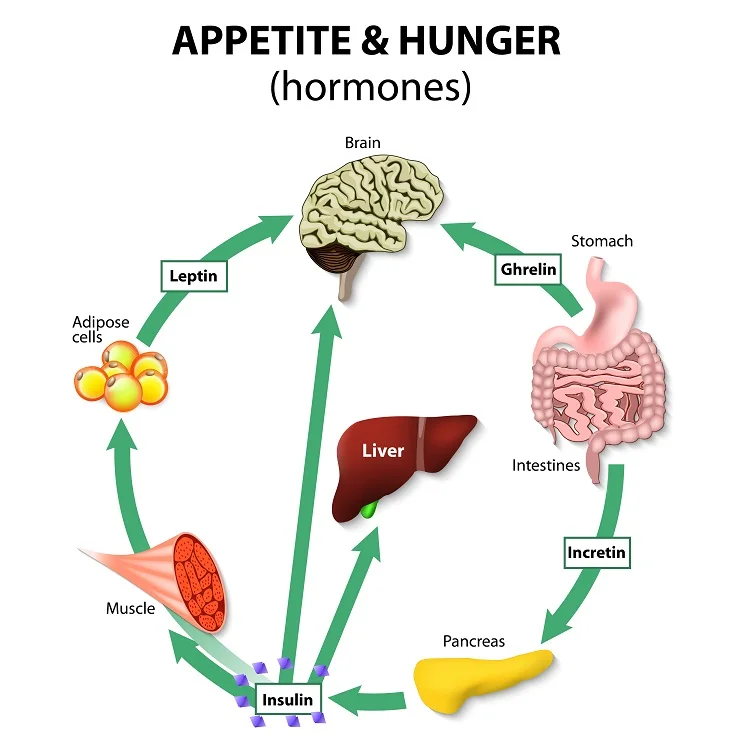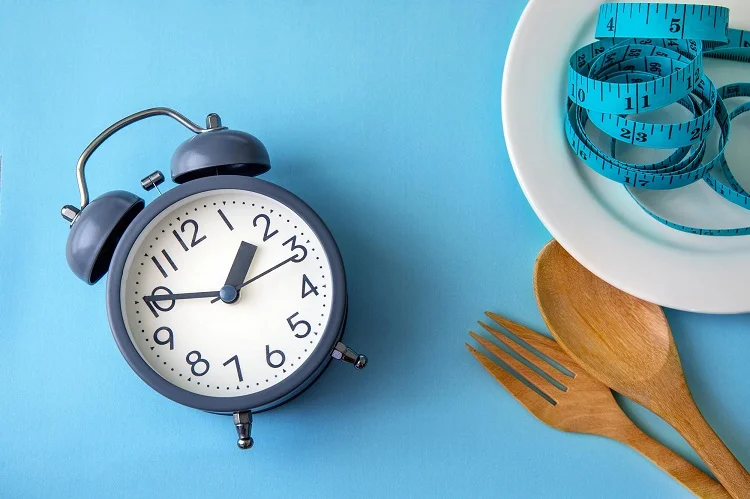Losing weight and being in a good shape, has always been a priority among people. We always find ourselves reading about the trendiest diets and healthy way of life. Keto diet, carnivore diet, Paleo diet… we have all tried something to make our bodies look the best possible. One of the most famous ways of dieting is called intermittent fasting. What is it exactly? How does it work? And the most important question for us women, does intermittent fasting affect hormones? Keep on reading to learn more!
What is intermittent fasting?
Intermittent fasting is a type of diet where you essentially set an “eating window”. That means only eating at a specific time and fasting for certain hours. Our bodies can go without food, but not without water, so when you are fasting you can still drink water and other beverages like tea or coffee. It is very significant to note that, here, we are not talking about fasting for 24 or more hours. That can be very dangerous for your health. For example, you wake up at 9:00 AM and don’t eat until 13:00 PM. From 13:00 PM until 20:00 is your eating window, meaning you can only eat during these hours. I suggest you do it only 3 times a week. How does it work? It is proven that this type of fasting can reduce body fat. A lot of studies show that when you “stress” your body with not giving it food, it starts to tap on our stored fats since it needs energy.
Does intermittent fasting affect hormones?
There are a very few studies made on the topic if intermittent fasting affects hormones. It is very controversial and people have different opinions. Different scientists conduct some studies and these are some of the conclusions that they drew:
1. Are hormones actually affected in a way?
Let’s look at the first point. Scientist from Chicago, made a study where they take women who are pre-menopausal and women post-menopausal, and they put them into this type of diet. After 8 weeks, no change was noticed in the globulin hormone. This is the protein that transfers the reproductive hormones through the body. For the DHEA, a hormone that can improve your egg quality, they saw a minor drop for both types of women. For the post-menopausal women, that can be dangerous since DHEA is part of the estrogen. However, the participants said that there were no side effects. According to the same scientists, the negative effects of intermittent fasting came from studies that were made not on humans, but rats and mice. They have stated that overall it can improve your health and balance your hormones.
2. Does intermittent fasting affect reproductive hormones?
Intermittent fasting can affect reproductive hormones for women. Since you are stressing the body with periods without food, you are making it think that it is not a good time to reproduce. Some doctors think that because almost anything can affect our menstrual cycle, intermittent fasting can do it as well. Overall, if you are stressing for something, that can affect your menstruation. This type of diet can stress the body. You have to be really careful when going on any type of diet. If you are pregnant, or you are trying to conceive, I would suggest to absolutely avoid any type of food restriction.
3. Can women in menopause do intermittent fasting?
Stepping up into the menopause, it is normal for women to gain weight, due to hormonal disbalance. Most of the time, it is noticeable around the stomach area, which can often mean problems with cholesterol. Intermittent fasting can actually be very beneficial for women in that stage of their life. It does not restrict you from any type of food. You don’t have to stop eating carbs or fats. It simply limits your time for eating, which automatically means you will intake fewer calories. If done properly, you can lose weight and improve your health in general. You have to make sure you choose healthy food for your “eating window”. It is essential that you select an intermittent fasting menu that suit your metabolism.
How to do it safely?
I should start by saying that there are people that should absolutely stay away from intermittent fasting. For example, kids, pregnant women, women that are trying to conceive, people diagnosed with hormonal issues, people experiencing issues falling asleep should stay away from diets in general if not prescribed by a doctor. When thinking to go on a diet, I would suggest to first visit your doctor’s office. How to make sure you do it safely? First, I would advise you to start slow. Don’t rush your body to start losing weight by doing an extreme fasting for 24 hours. Fast for not more than 3 times a week on non-consecutive days. Fast during 12 to 13 hours, which includes the time that you are asleep and not eating. Don’t do intense workouts during your fasting days, and also avoid fasting when you are on your period. Another great advice is to plan your meals in advance, so you have your food prepared, because let’s be honest, fasting will make you hungry.






